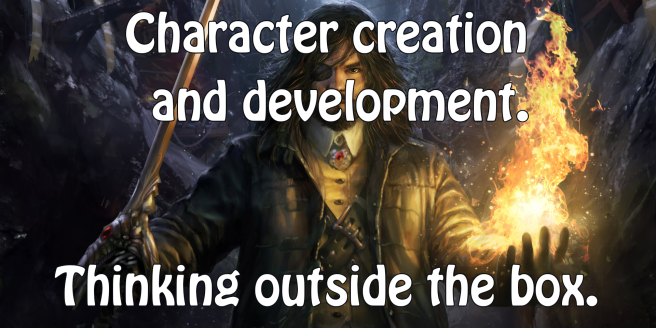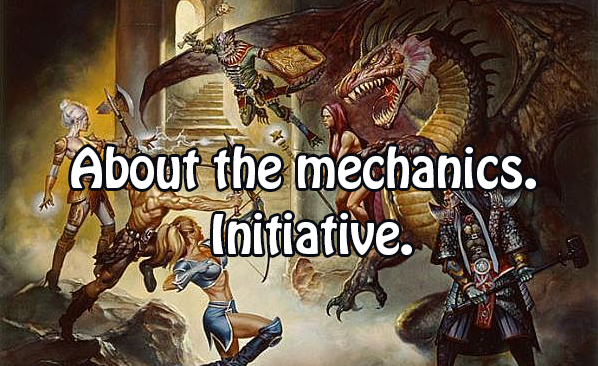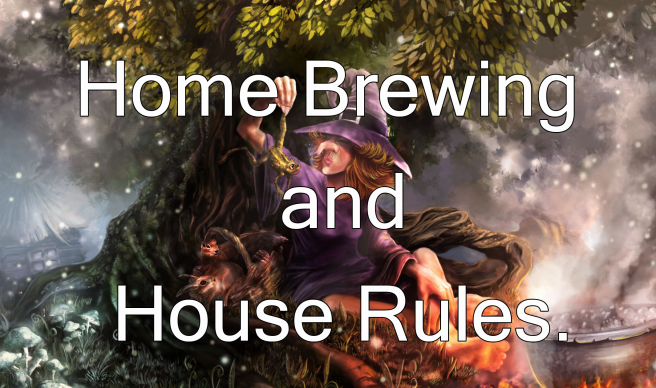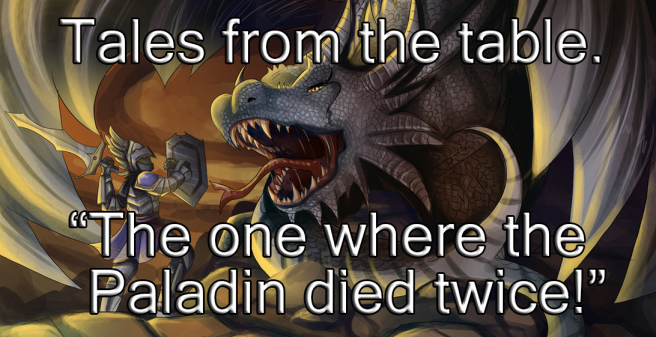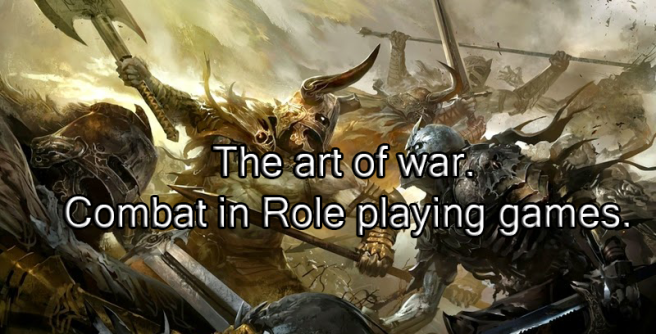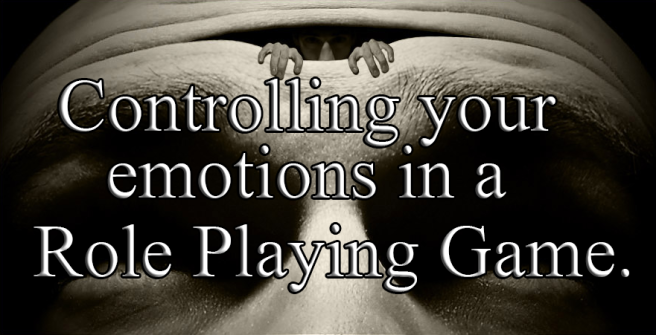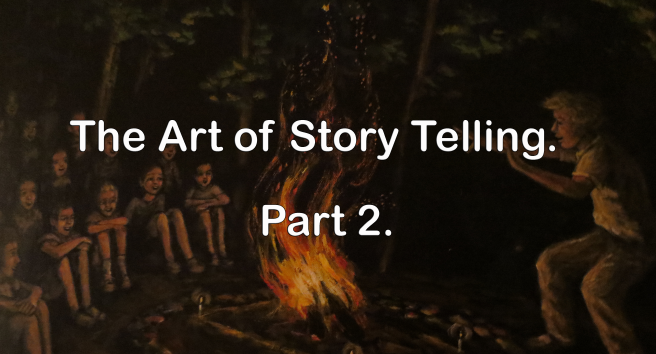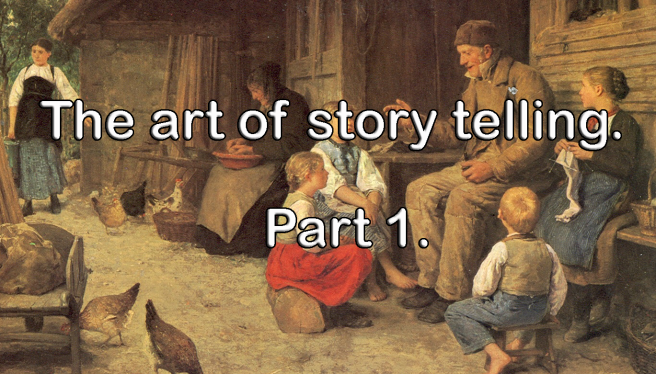So we all know that in most editions of Dungeons and Dragons there are just some skills, talents, feats or abilities that seem to rise to the top. For example a fighter in 3.5 just about has to take the desired weapon focus and specializations for his weapon of choice, and feats like power attack and cleave are almost impossible to ignore. So more often than not we start too see the same old fighter, rogue and wizard rising to the surface, with only the alignment, race and the way they are role played to offer diversity. Well of course if you are going to play in a min max environment, then you are going to take whatever feats you can to make you as bad ass as possible right? Most people immediately gravitate towards making their character powerful. However in this topic I am going to challenge you to think outside the box and remember that the best part of any role playing game, is the role playing itself!
Now when you create your character you have a wealth of options available to you, but yet most people only concentrate on getting big stats, and feats or talents etc that make their character Mr awesome. I have had many epic characters (stat and ability wise) in the past three plus decades and many gimp ones. The most boring character I ever played was a Knight who was seriously over powered. At the time I fell foul to the same trap as many and continued to take him down a development path to ultimate power. The luster of slaughtering every foe wore of quick and what was left was the fun of role playing his personality. In contrast the most fun I ever had was with a one armed thief with poor stats. He was so much fun to role play, and the failures he had were down right entertaining, while his successes were more epic due to his minimal chance of victory.
When you create your character, other than selecting a race and maybe the base class, you should begin by write his or her back story. I know many people write the back story after the character has been created, but doing it first will change the outcome of your decisions. A point about race selection. If you are going to be demi-human then for the love of Gygax make sure your character feels demi-human! Do not play it like its a human with special abilities. Explore the culture of the race in your character creation process, and let that be a part of who they are. Go back to your characters childhood and decide on things that happened to him that shaped his personality and desires. Put thought into his past life before becoming an adventurer, and then take this well developed story and decide where he would have gone next. At this point you can begin building the character, but instead of picking the “go too” talents for your class, pick ones that make sense for him to have acquired. Spend skill points based on experiences and not just on what skills make you the most effective. It can be challenging to do this, as often you will be picking situational abilities that may be great at times but not as commonly used as something like Dodge, and the desire to be a powerful combatant will need to be repressed.
In regards to stats. Just because a clerics prime stat is wisdom, should he always put his highest stat in that ability? what if his wisdom was just adequate, but he decided to be smart and use his head as much if not more than his divinity? What if a fighter decided to make dexterity his highest stat, and use light weapons and go for feats like weapon finesse instead? Would a swashbuckler or duelist emerge instead?
As your character develops and levels, try to think about the tasks he performed, and the situations he went through, and spend skill points and pick feats that reflect them. Do this instead of picking the next logical feat that improves his bad assness. Try selecting non common feats for your character. Feats like improve trip or improved sunder are often ignored, but they can bring a lot of diversity and fun to the game and make your character something different from the norm.
In our current Howreroll campaign “The Children of Drakhar” , we have a female monk with some interesting ability choices. I am very interested in seeing how this character develops, and already her choice of improved trip has proven far more useful than something like cleave.
With a non standard character design your options for role playing this character will change. When this happens you will find you are able to embrace a different personality for the character, and as such break from the cliche. The fun to be had role playing a weak or less than perfect character, or just being different is far greater than that when your warrior kills an ogre in one attack round.
Giving your character a few quirks, even if they offer some type of disadvantage (like only having one eye) can give depth and open new doors when it comes to role playing the character. Choosing to be hard of hearing may mean you take a penalty to your listen checks, but it could be fun in certain social situations.
The characters I remember most from my years of gaming are the ones that were different and stood out. Not because they had max stats and were seemingly invincible, but because they were memorable due to being different and the unique quality they brought to the gaming session. For example. The Green Flash was a ranger who acted like a super hero. Bruce Custard was a Halfling chef and barber who fought primarily with a sling. Thaal was a barbarian that used to rip enemies apart bare handed. Tom “Nubby” Denton was a one armed human thief. Lindsafel was an overly compassionate and gullible female Druid. Fritzgig the bull headed dwarf, that played chicken with a charging Rhino and liked to headbutt his enemies. All these characters stick with me due to their interesting quirks and not their effectiveness in a situation. In fact many times Nubby Denton failed as a thief, and his failings out numbered his successes by far. Thaal could have done more damage with a two handed axe, yet when he lost his temper and just waded in fist firsts, it was far more memorable. And the Green flash was so full of himself and loud in both personality and appearance that he stood out like a sore thumb in any wilderness setting.
In time the joys of playing a powerful character fade, and you look back and do not even remember the names of the characters you played, or met along the way. That being said some will stick with you for ever. For me it has always been the ones that broke the mold or challenged the norm. Seeing the joy those characters bring to a gaming session can not be quantified for me as a Dungeon Master, and I am always willing to work with any player that wants to bring something “unusual” to the table, as long as it is going to improve the story and enrich every ones experience at the gaming table.
My challenge to any player is “make me believe in your reality”. I want to know without asking why you performed a certain action. I want to understand who you are and why you do what you do. I lose interest in cliche characters that act based on what is “best” for themselves all the time.
Learning how to create a good character is more than just knowing what stats to put where and what feats or skills make you optimal. I cringe at the growing movement for optimal character builds, and the way people are encouraged in making their characters like its something from a video game. A pen and paper role playing game character needs to have many more levels to it than just its stats, skills, feats and abilities.
Try building your next character outside the box, and really “going for it” in a role playing sense. You wont be sorry…………………

